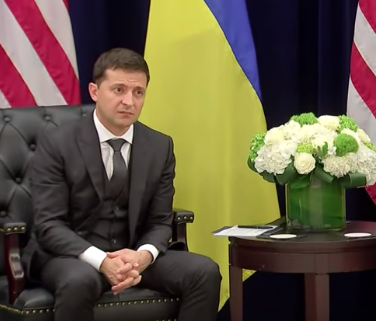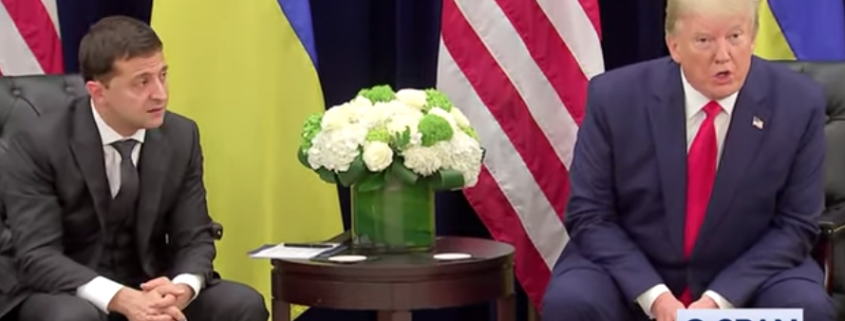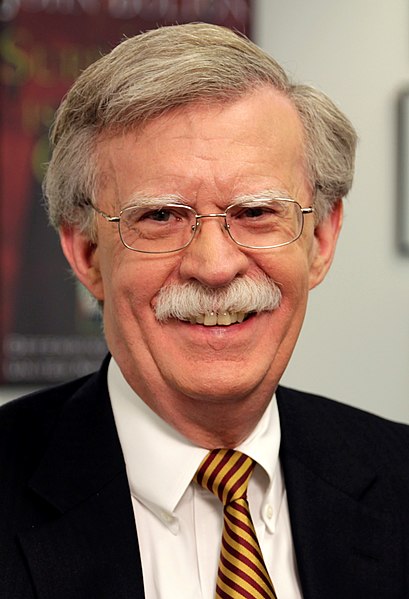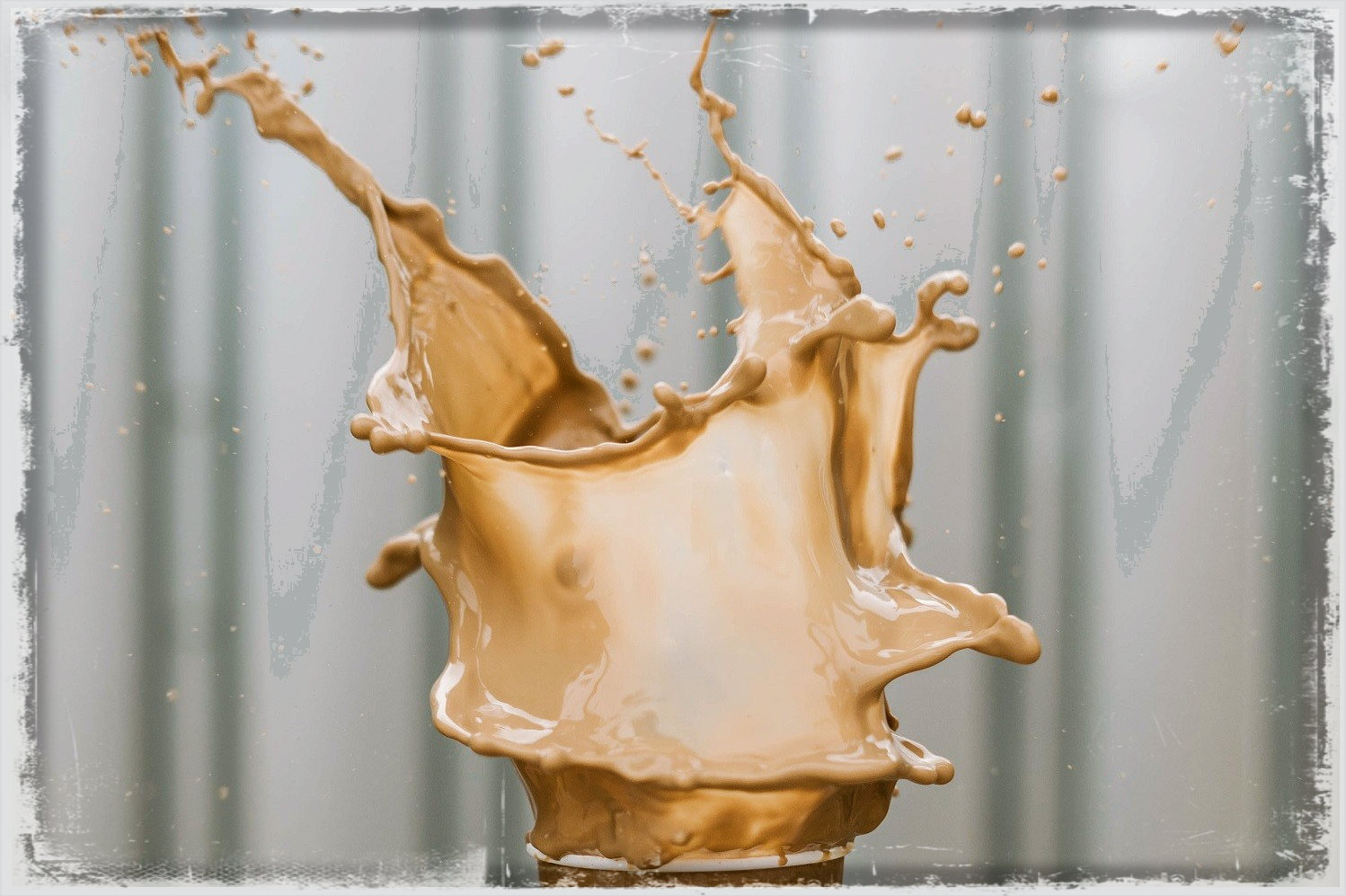How Trump Put Volodymyr Zelensky in a Public Box, After All
Some weeks ago, I predicted museums would one day display a copy of John Dowd’s letter describing how Lev Parnas and Igor Fruman — who was arraigned the other day, with the latter being represented by Paul Manafort’s lawyer in his NY State case — were in a nest of ethically ridiculous conflicts with Rudy Giuliani, the President, and Dmitry Firtash’s lawyers. Another document that will be displayed as a key record of history, I think, is William Taylor’s statement to Congress Monday, which WaPo managed to obtain and republish.
The whole thing is worthwhile. But I want to pay particular attention to what Taylor said about Trump’s demand that Volodymyr Zelensky state on the record his willingness to investigate the 2016 election and Joe Biden, because it changes the import of Trump’s decision to release the call transcript.
As Taylor describes it, he first learned of Trump’s demands regarding investigations on June 27, when Gordon Sondland told him about it. The next day, Sondland went to some lengths to prevent any contemporaneous transcript of a call with Zelensky, at which Sondland explained Trump wanted “cooperation on investigations to ‘get to the bottom of things'” (a line Trump would use in the July 25 call). Taylor would learn on July 19 that at a July 10 meeting (the one after which John Bolton accused Mick Mulvaney and Volker of setting up a drug deal), Sondland tied “investigations” to an Oval Office meeting with Trump. The same day he learned that, Sondland participated in a 3-way WhatsApp chat where Volker said that on an upcoming call, Zelensky should “say that he will help investigation–and address any specific personnel issues–if there are any” (another line that would appear in the July 25 call, this time parroted, though not as exactly, by Zelensky). The next day, Sondland told Taylor he had scripted Zelensky to say, “I will leave no stone unturned” on investigations (this particular line did not make it into the final call).
All that scripting (as well as more scripting from Sondland for Trump immediately beforehand) happened before the July 25 call.
In the call that Zelensky surely expected would remain private, he repeated much of what the back channel advisors had cued him to say. In addition to scolding Europe for not supporting Ukraine as well as the United States and providing assurances that he would and already had made personnel changes Trump wanted to see, Zelensky repeatedly agreed to cooperate on investigations.
I also plan to surround myself with great people and in addition to that investigation, I guarantee as the President of Ukraine that all the investigations.will be done openly and candidly. That I can assure you.
[snip]
I wanted to tell ·you about the prosecutor. First of all I understand arid I’m knowledgeable about the situation. Since we have won the absolute majority in our Parliament; the next prosecutor general will be 100% my person, my candidate, who will be approved, by the parliament and will start as a new prosecutor in September. He or she will look. into the situation, specifically to the company that you mentioned in this issue. The issue of the investigation of the case is actually the issue of making sure to restore the honesty so we will take care of that and will work on the investigation of the case. On top of that, I would kindly ask you if you have any additional information that you can provide to us, it would be very helpful for the investigation to make sure that we administer justice in our country with regard to the Ambassador to the United States from Ukraine as far as I recall her name was Ivanovitch. It was great that you were the first one who told me that she was a bad ambassador because I agree with you 100%.
[snip]
I also wanted to thank you for your invitation to visit the United States, specifically Washington DC. On the other hand, I also wanted to ensure you that we will be very serious about the case and will work on the investigation.
These assurances came in response to clear demands from Trump. First he asked for an investigation into 2016.
I would like you to do us a favor though because our country has been through a lot and Ukraine knows a lot about it. I would like you to find out what happened with this whole situation with Ukraine, they say Crowdstrike … I guess you have one of your wealthy people… The server, they say Ukraine has it. There are a lot of things that went on, the whole situation. I think you are surrounding yourself with some of the same people. I would like to have the Attorney General call you or your people and I would like you to get to the bottom of it. As you saw yesterday, that whole nonsense ended with a very poor performance by a man named Robert Mueller, an incompetent performance, but they say a lot of it started with Ukraine. Whatever you can do, it’s very important that you do it if that’s possible.
Then he made several demands that Zelensky investigate Biden.
The other thing, There’s a lot of talk about Biden’s son, that Biden stopped the prosecution and a lot of people want to find out about that so whatever you can do with the Attorney General would be great. Biden went around bragging that he stopped the prosecution so if you can look into it … It sounds horrible to me.
He then seems to demand that Zelensky reinstate Viktor Shokin, the corrupt prosecutor Biden (and much of international community) called to be fired.
I will have Mr. Giuliani give you a call and I am. also going to have Attorney General Barr call and we will get to the bottom of it. I’m sure you will figure it out. I heard the prosecutor was treated very badly and he was a very fair prosecutor so good luck with everything.
In the following weeks, as Trump’s Attorney General made at least four efforts to cover up a whistleblower complaint about this call, Trump made increasingly alarming (to Taylor) demands from Zelensky, even after he had provided the assurances he thought Trump wanted in this private call.
On August 16 — by which point DOJ had learned of the outlines of the whistleblower complaint from John Demers’ review of the transcript — Taylor learned that Andriy Yermak wanted to ask DOJ to make a formal request that Ukraine investigate Burisma (and, presumably, Hunter Biden).
Then, on September 1, after DOJ had already received the formal whistleblower complaint and as the risk of security cooperation initially withheld in mid-July would become permanent, Mike Pence refused to release it, instead renewing a request that Ukraine “do more to fight corruption.” Taylor also learned that Sondland had told Yermak that security assistance would not be released until Zelensky “committed to pursue the Burisma investigation.” That’s when Sondland told Taylor that,
President Trump had told him that he wants President Zelenskyy to state publicly that Ukraine will investigate Burisma and alleged Ukrainian interference in the 2016 U.S. election.
Ambassador Sondland also tole me that he now recognized that he had made a mistake by earlier telling the Ukrainian officials to whom he spoke that a White House meeting with President Zelenskyy was dependent on a public announcement of investigations–in fact, Ambassador Sondland said, “everything” was dependent on such an announcement, including security assistance. He said that President Trump wanted President Zelenskyy “in a public box” by making a public statement about ordering such investigations.
That was one day before Acting Director of National Intelligence Joseph Maguire should have transmitted the whistleblower complaint to Congress. It was two days before OLC would write a memo, which it overclassified as Top Secret, claiming Maguire could ignore the law and withhold the complaint.
On September 8, Taylor would learn that even after (on Taylor’s request) Sondland tried to push back on Trump’s demands for a public statement from Zelensky, Trump sustained them, and so Sondland passed on that demand.
He said he had talked to President Trump as I had suggested a week earlier, but that President Trump was adamant that President Zelenskyy, himself, had to “clear things up and do it in public.” President Trump said it was not a “quid pro quo.” Ambassador Sondland said that he had talked to President Zelenskyy and Mr. Yermak and told them that, although this was no a quid pro quo, if President Zelenskyy did not “clear things up” in public, we would be at a “stalemate.” I understood a “stalemate” to mean that Ukraine would not receive the much-needed military assistance. Ambassador Sondland said that this conversation concluded with President Zelenskyy agreeing ot make a public statement in an interview with CNN.
[snip]
Ambassador Sondland tried to explain to me that President Trump is a businessman. When a businessman is about to sign a check to someone who owes him something, the businessman asks that person to pay up before signing the check.
Taylor, of course, immediately saw the game and laid a record. “nightmare is they give the interview and don’t get the security assistance. The Russians love it.”
Taylor, apparently without even knowing about the brewing fight over the whistleblower complaint, sent a text the next day, September 9, making it clear he understood this to be a quid pro quo. “I think it’s crazy to withhold security assistance for help with a political campaign.”
That same day, after three bipartisan Congressional requests had already been made to release the assistance, the Committees on Intelligence, Foreign Affairs, and Oversight wrote to the White House requesting documents related to “the actual or potential suspension of security assistance to Ukraine,” (which would heighten the impoundment risk). And the next, September 10, Adam Schiff sent the first letter making it clear he knew of the whistleblower complaint DOJ was so actively suppressing.
On September 11, Trump released the funds.
Taylor spent the next several days trying to get assurances from Ukrainians that they would not follow through on the CNN interview they had agreed to, which Oleksandr Danyliuk agreed to on September 13.
And that’s where everyone seems to believe it ended, with Taylor managing to prevent Trump from getting what he wanted, a public announcement from Zelensky that he would carry out Trump’s dirty work, but was doing so willingly.
But that’s an entirely incorrect understanding of what happened. Indeed, Taylor alludes to as much when he describes what happened when Trump — under gathering pressure about the complaint — chose to release the transcript of the call. As Taylor described, it happened as Zelensky went into his meeting with Trump at the UN, and Ukraine got no notice Trump was going to do so.
On September 25, at the UN General Assmebly session in New York City, President Trump met President Zelenskyy face-to-face. He also released the transcript of the July 25 call. The United Staes gave the Ukrainians virtually no notice of the release, and they were livid.
While they were at the UN, Danyliuk, who’d been central to these negotiations, got fired.
The first question at the joint presser after their meeting was about the call, and Zelensky had little choice but to claim, dishonestly, that Trump had put no pressure on him.
We had good phone call. It was normal. We spoke about many things. I think, and you read it, that nobody pushed, pushed me.
By staging it that way — by responding to Congressional demands the way he did — Trump got what he wanted in the first place, and got it in a way that got far more publicity than a CNN interview. By putting Zelensky in this position, Zelensky had not choice but to agree that both the investigations Trump wanted — into 2016 and 2020 — were legitimate investigations and not, themselves, abject corruption.
Corrupt hacks like Trump and Putin make great efforts to undermine any claim that others — the West, the pre-Trump — have greater moral standing than they do. And by ensuring that within months after taking power, someone who won on a platform of reform was publicly humiliated into embracing corruption, it normalizes corruption and undercuts Zelensky’s independent base of authority.
And it was not just Zelensky that Trump displayed as a corrupt hack, either. Bill Barr has spent the last month denying that his own corrupt effort to undermine the Barr investigation had any tie to this call and the President’s extortion. With Barr, it likely doesn’t matter. He would have happily done that anyway. Barr’s effort aims to do precisely what Trump did in that presser, to paint a legitimate investigation into Russian organized crime as, itself, corrupt, all the while undermining the rule of law in this country. But by implicating Barr in his extortion attempt, Trump eliminated Barr’s ability to distance himself from the larger corrupt enterprise.
This was not, as many people imagine, about getting Zelensky to led credence to the claims about Biden, though that’s a side benefit. It was about upending the very notion of corruption.
And Trump got that, without even needing that CNN interview.






